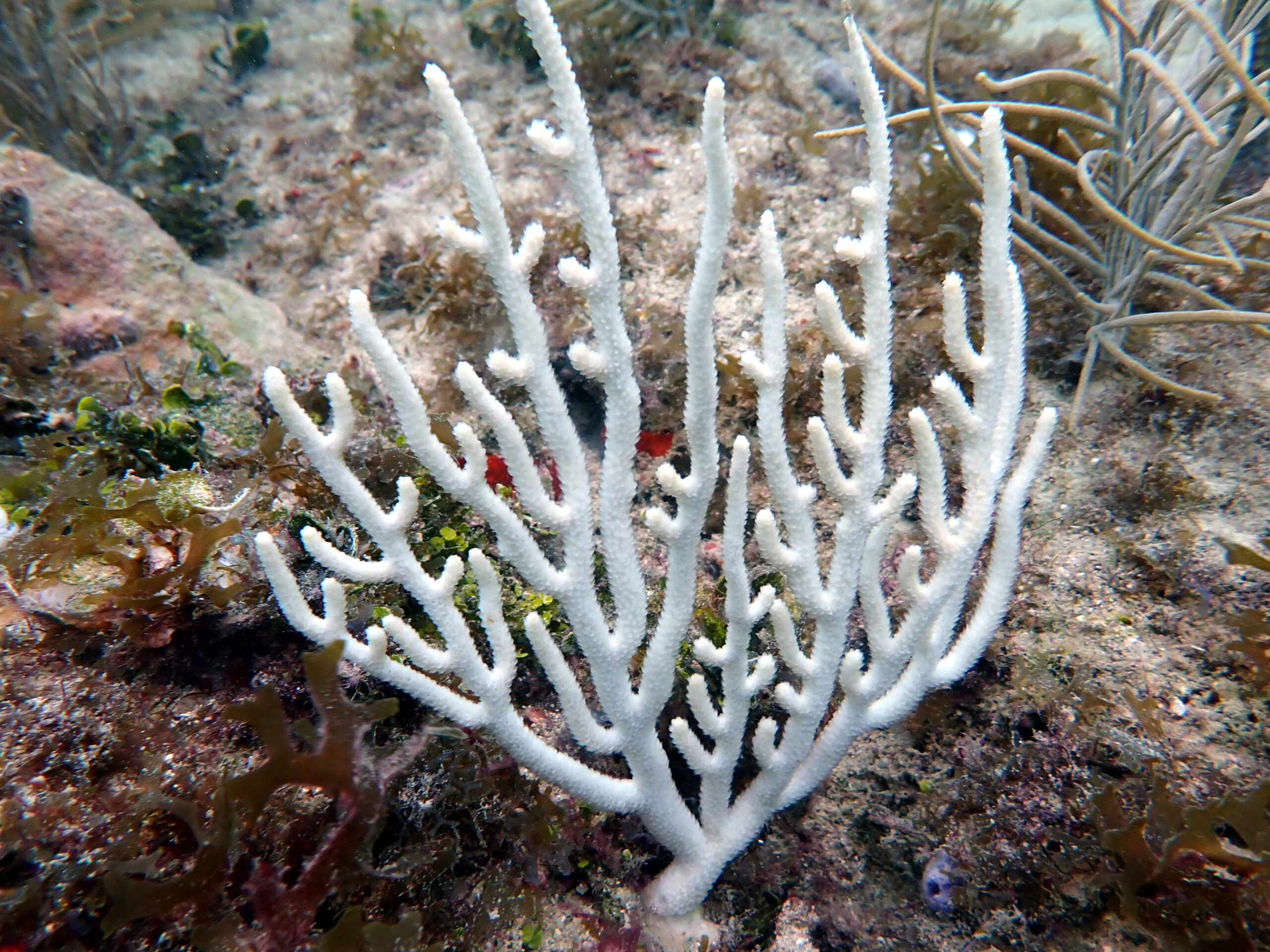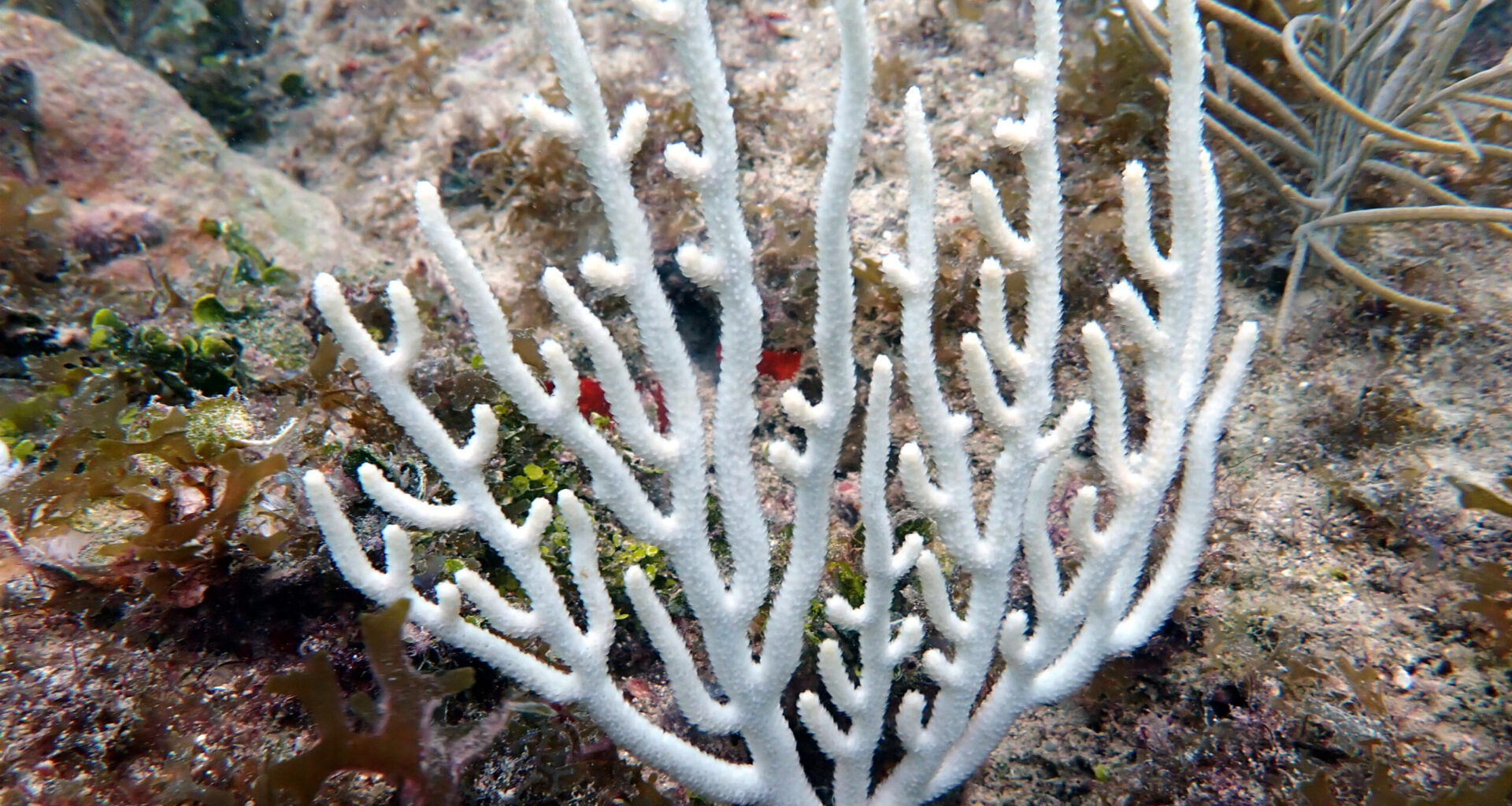
Muricea Muricata // Credit: Ronen Libernman
Listen:
A rare coral bleaching event is going on now offshore of Fort Lauderdale and Dania Beach – and researchers at Nova Southeastern University are calling the findings troubling.
Research shows octocorals, which include species typically known for resilience against bleaching, are bleaching.
These colonial animals help to support biodiversity by providing habitat for other marine life.
Bleaching is a stress response where corals and other organisms become white because they lose their symbiotic algae.
“It’s hard. You know, it’s hard because I never thought I’d be witnessing this in my lifetime,” said Dr. Jose Lopez, a professor with NSU’s Halmos College of Arts and Sciences.
He said the bleaching could be tied to rising ocean heat during the summer months.
“Luckily for our area, we haven’t had many storms, but that also led to less circulation in the water. And that, that also could, together with the high temperatures, could have led to this bleaching.” Lopez said.
Hurricanes and tropical storms cool ocean waters, and researchers say this year’s quiet storm season may be what contributed to heat stress in the octocorals.
This comes as a report from ‘Global Tipping Points’ shows coral reefs worldwide are nearing a tipping point of collapse due to climate change.
NSU researchers are continuing to monitor the reefs closely to determine how the octocorals recover, or if this event signals a deeper, long-term impact on South Florida’s reef ecosystem

